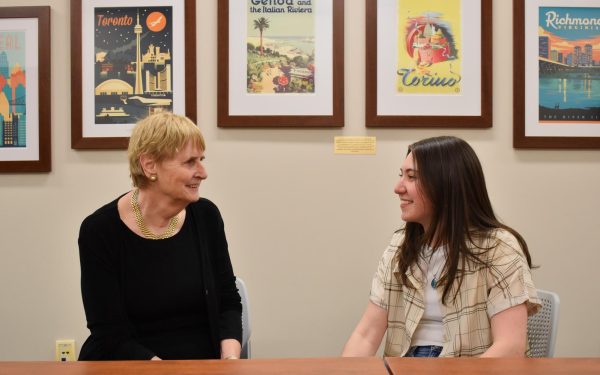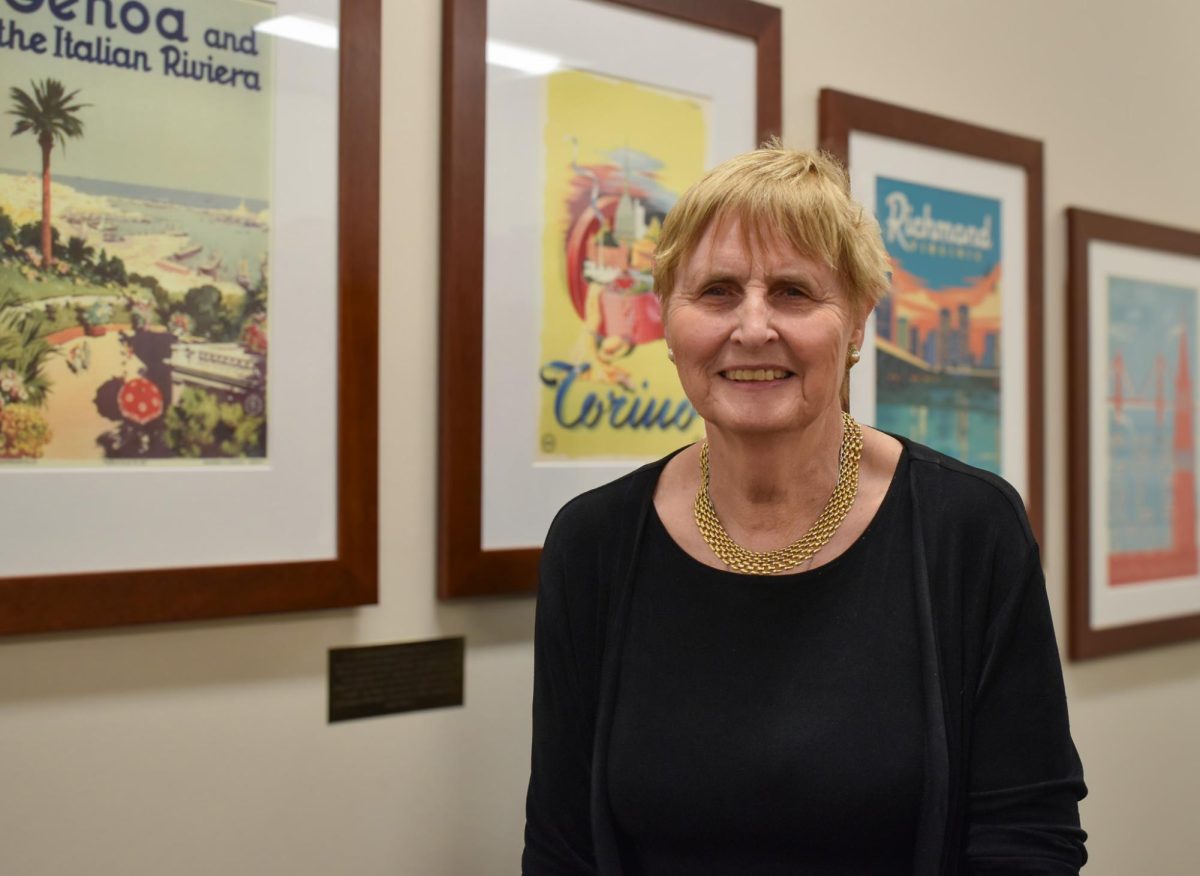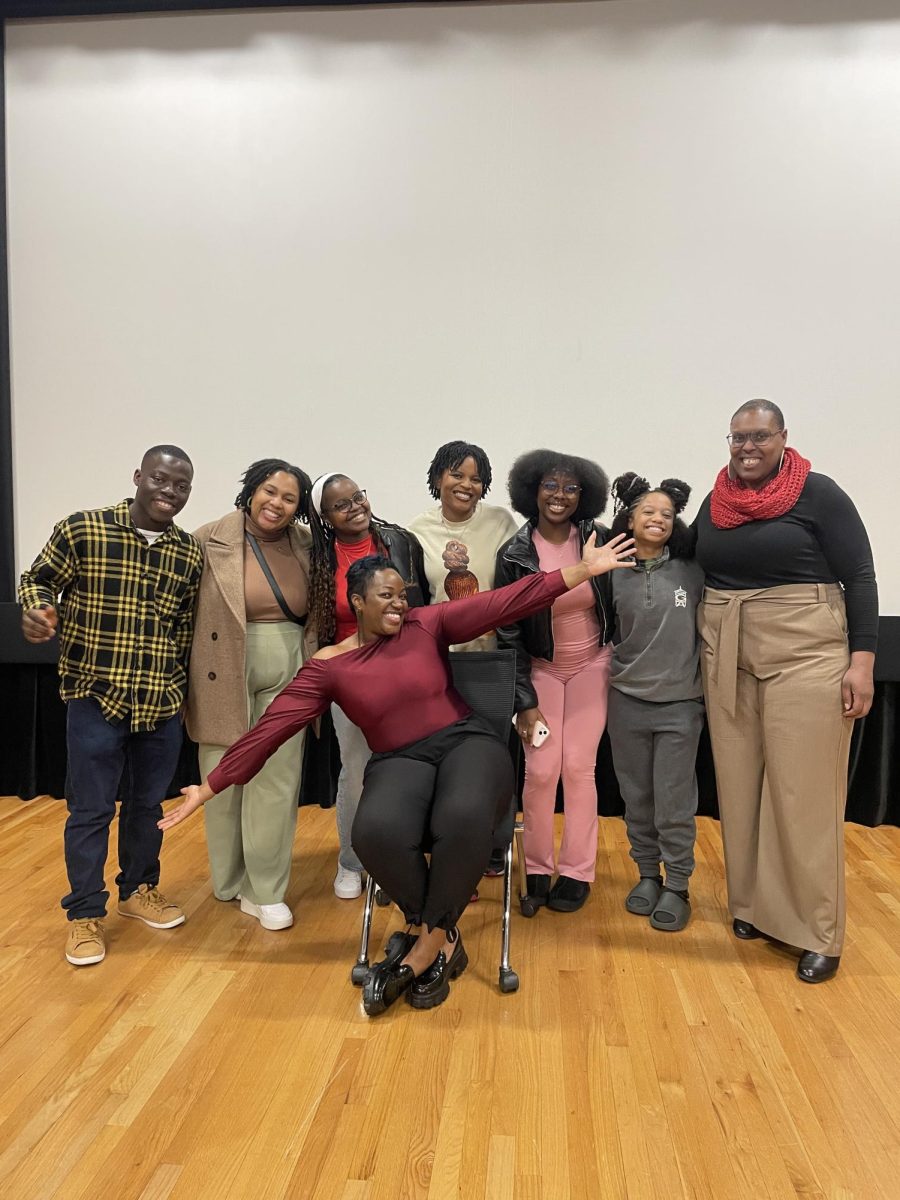It’s 1917. You’re a student at Greenville Women’s College. It’s time to debate: should women be allowed to vote?
This is the kind of immersive learning experience you would get in a class with Dr. Marian Strobel, who has been a professor of women’s history at Furman for 43 years. Whether it is reproductive rights, the right to vote, or women’s health, Strobel says it is hard to make sense of the present without understanding the history that formed it. She puts students right there in key historical moments, forming a consistent thread through the past and present that draws students in.
Her own curiosity for history piqued when she was 12 at a museum in New York, but her teachers determined she was “too shy” for advanced social studies classes in high school until she finally made it into one AP history class. When she arrived at Mount Holyoke College, she was sure that history was the right path for her.
Surrounded by powerful and capable female peers, and in close proximity to Seneca Falls, the site of the famous Women’s Rights Convention, her formative years were buoyed with empowerment. “Those kinds of role models stick with you,” she said.
Strobel’s Ph.D. adviser at Duke University was the first to write a major work on 20th century American women, allowing her to envision a path for herself in this emerging field.
Before Furman, she taught at a few different colleges in her 20s, always as the only woman in her department. At the University of Virginia, the department had 35 men. It was similar at Phillips Exeter Academy, which is ranked as the #1 high school in the U.S., according to Niche. She described it as, “basically a male bastion, a lot of decisions were made in the men’s locker room over the gym, literally.” But Strobel kept the empowerment from Mount Holyoke in her heart, not letting the negative culture affect her goals.
During her time at Phillips Exeter, she visited Furman for a conference. She thought, “I would love to be at a school like this. I would just adore it.” Soon after, she saw a job opening at the university. “It looked like it had been written for me,” she said. “Now it hadn’t been written for me, but it was exactly in my field.”
She went on to become the first woman tenured in Furman’s history department. Strobel’s studies in women’s history filled a gap in the curriculum that the current professors couldn’t themselves, making her a welcomed figure amongst the group. She had become used to being the minority by now — but unlike the other workplaces in which she was the minority, she finally felt fully included.
Maybe it was the first impression she left, when she made it clear that she couldn’t be messed with. “We went to (former Furman history professor) Ed Jones’s house for dessert and coffee. And the guys all stood up, and I said, ‘Oh, gentlemen, sit down.’ And they said right then and there, they knew I could handle them,” Strobel said.
With ease and humility, she quickly came to hold a special place in the hearts of students and colleagues alike. “She blended in effortlessly and with great humor, something that shows her courage, finesse, flexibility and talent,” Dr. Lane Harris, a Furman history professor, said. Strobel served as department chair for 11 years.
Strobel often teaches from memory, with just a yellow pad for notes. She uses her students’ curiosity as a guiding light, adapting to the students’ energy as if she is a performer reading the crowd to perfect her act. “It’s just making sure that people are really interested in what you’re doing to extend that enthusiasm and excitement, that’s what I want,” she said.
When students start making sense of historical connections, a lively debate will bloom naturally in front of her — like the time when students debated a 1956 U.S. policy toward Hungary for an hour. “Who would have thought they would have been excited about that, but they somehow were!” she said.

Strobel’s legacy for finding the hidden parts of history that foster curiosity will live beyond the content she teaches — it’s how she delivered it that has made so many students go on to become interested and find meaningful careers in the field. She has been honored with a Meritorious Teaching Award, the All-Southern Conference Faculty Award, and the Cothran Center’s Jim Stewart Award for Vocational Reflection, among many others.
“She has given me advice on applying to law schools, and has been a critical part of my experience,” Morgan Chapman ‘25 said. “I tell everyone I know to take at least one course with her during their Furman careers.”
Strobel’s gentle career guidance and curiosity for history helped them attain positions across the nation: an American history professor at the University of Michigan, the chief historian for the Department of Defense and a Harvard law professor who delivered the commencement speech last year. Strobel is retiring at the end of the semester, but she’ll still be around to spark more students’ interest in history by teaching a few selected courses to fill gaps caused by professor sabbaticals.
“Furman will be losing one of its real treasures,” Harris said. “The place—and certainly the History Department—will never be the same without Dr. Strobel.”
For Women’s History Month, Strobel says we must continue to recognize the contributions of women worldwide, especially in light of recent issues such as reproductive rights and women’s health in third world nations. Women like Strobel, with her constant care for others and undying curiosity for her work, remind us to recognize these achievements all year round.
She leaves young women navigating their way through their passions with a message of empowerment: “Just hang in there and do the very best you can, and be proud of your achievements, and think you can do it.”






































